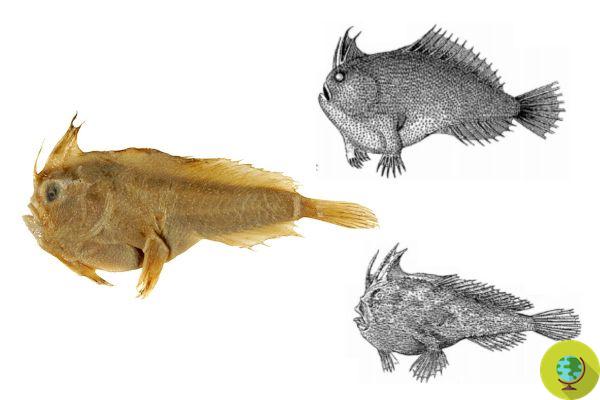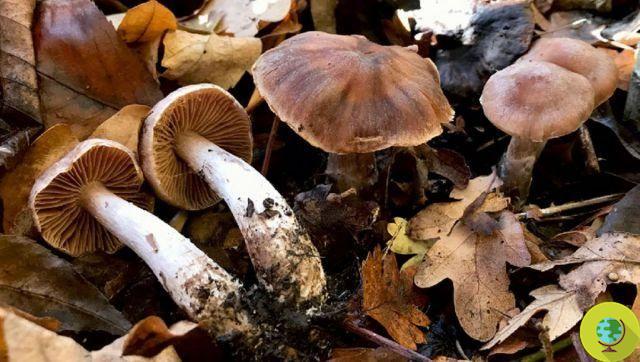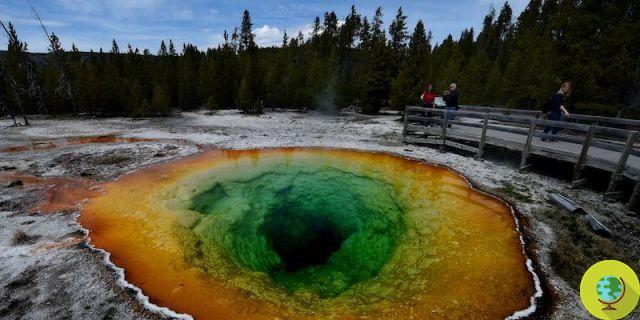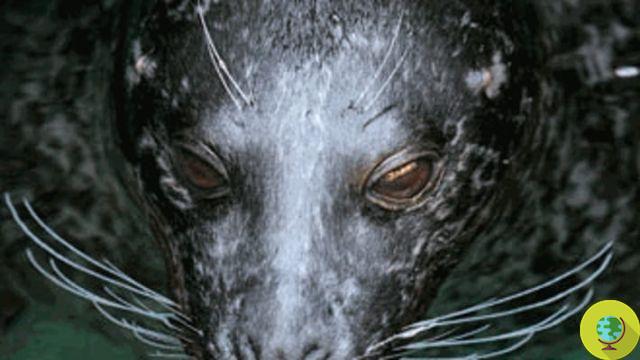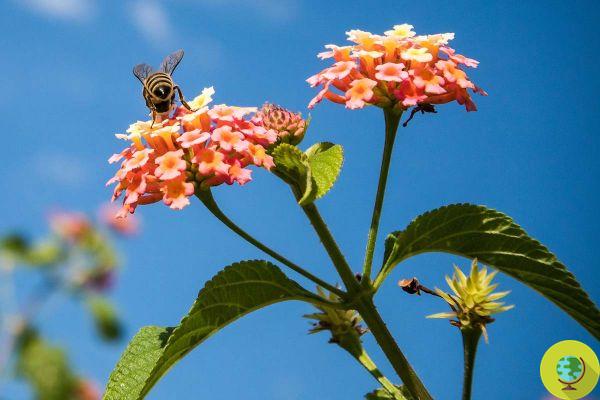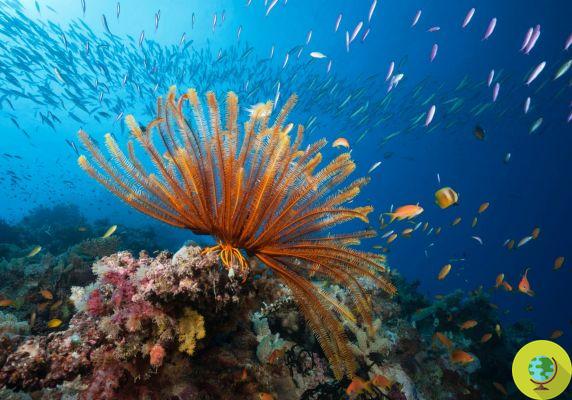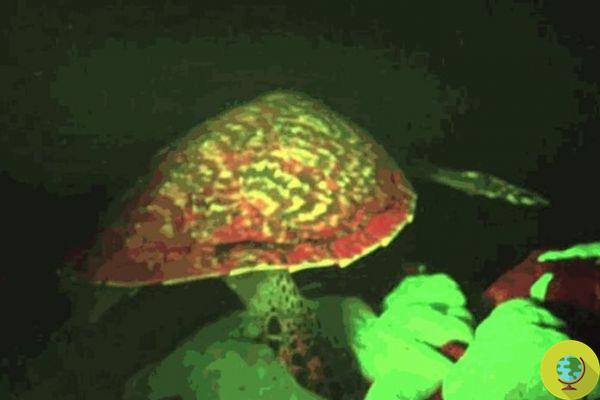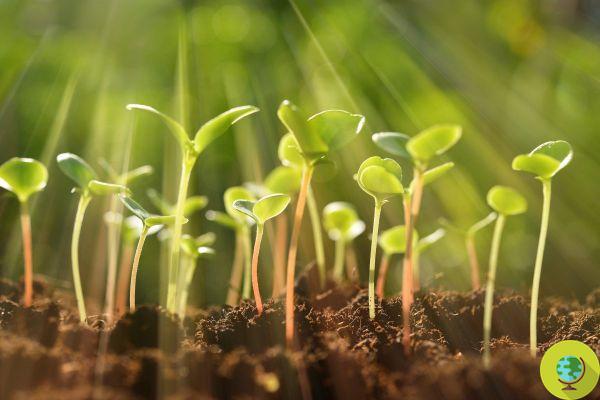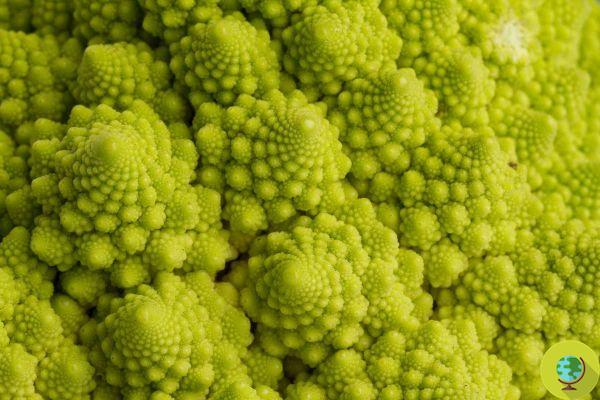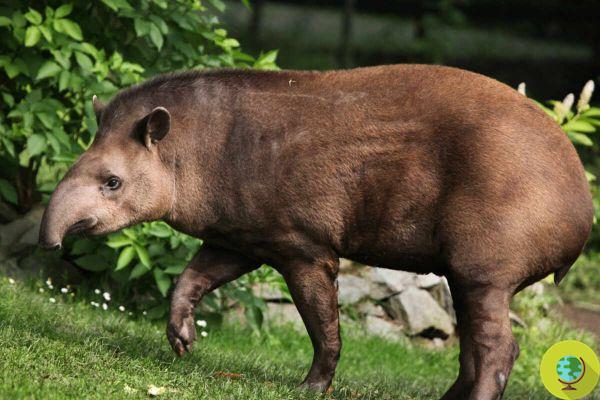"When bees disappear, humanity will only have four years of life left": generally attributed to Albert Einstein, but in reality of dubious authorship, the statement contains a great truth, namely our dependence on these small but so extraordinary insects
He is about to end up run over, his mother saves him“When bees disappear humanity will have only four years of life left”: generally attributed to Albert Einstein, but in reality of dubious authorship, the statement contains a great truth, namely our dependence on these small but so extraordinary insects.
We do not know if the years of human life would be exactly 4, but in any case the extinction of bees would lead to an ecological disaster not very different from the ice ages. But the worst thing is that we are accelerating it with our own hands.
The production of the beloved honey is truly the least of the things that would be lacking in their absence. In fact, from their so mysterious and fascinating life everything really springs, even what is not so obvious.
Let's see what lies behind the magical world of bees and why we can't live without them.
Index
They allow us to breathe

Bees are responsible for pollination at least 95 species of fruit and vegetables and contribute significantly to many other varieties: therefore, in fact, it is from them that the reproduction of the plant world derives and this allows us, for example, to breathe, given the enormous contribution to oxygen exchange which derives from the chlorophyll photosynthesis of plants.
We take into account that humans inhale the oxygen present in the air during inspiration and release carbon dioxide into the air during exhalation. The inhaled air contains 21% oxygen and 0,035% carbon dioxide, while the exhaled air, on the other hand, contains only 16% oxygen, but already 4% carbon dioxide.
Carbon dioxide is toxic to humans and with our breathing we actually contribute to increasing its concentration (not to mention what we emit with our activities). We therefore need plants (and therefore bees) to rebalance everything.
Thanks to them we can eat (and in a healthy way)

Fruits and vegetables = food. And above all, food which, if grown without too many human forcings, is also the healthiest imaginable, repeatedly recommended in all diets. Not being able to have them or being able to have them in limited quantities would lead to a series of unspeakable food and health problems.
In fact, fruit and vegetables contain many basic principles for nutrition, some of which are essential, including fiber and vitamins. Countless famines in human history have decimated the human population and the scarcity of medical knowledge about it has caused similar disasters. Just to cite an example, it is scurvy, a serious disease caused by an important deficiency of vitamin C (chemically ascorbic acid) can be avoided "simply" by eating fruit and vegetables.
Our body, in fact, is unable to synthesize this vitamin, an important cofactor in the formation of collagen (essential for maintaining the integrity of dentin, connective tissue and bone), carnitine, hormones and amino acids. In addition, it is an antioxidant, supports immune function, facilitates iron absorption and wound healing.
Even today, in the poorest regions of the world, the average age of survival is much lower also due to food shortages like this one.
Their existence determines our care if we are ill
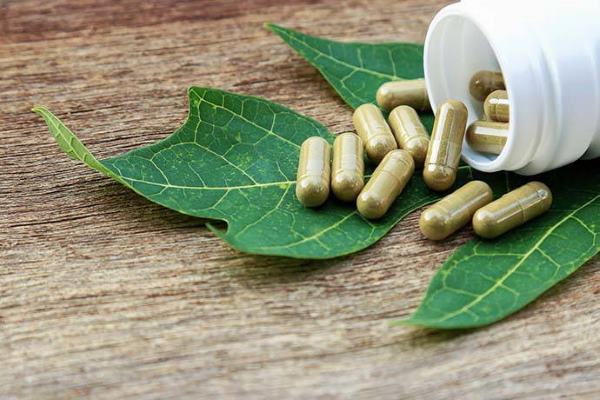
Less obvious but true: the production of many commonly used drugs derives from a lot of fruit and vegetables, the same that exists thanks to the tireless pollination work of bees. According to an estimate by the World Health Organization, 25% of the drugs currently used come from plant species.
There are many examples that could be cited, such as theaspirin, chemically acetylsalicic acid, obtained from the salicylic acid contained in the willow bark (hence the name). And so many other analgesics, antipyretics, but above all various chemotherapeutic drugs, drugs for the cardiovascular system, ophthalmic, and even altimalarials (quinine).
An inestimable heritage from which the raising of our average age derives, at least in part. And that is still underestimated: it is believed that the species that may contain medical active ingredients are between the 10.000 and the 53.000.
They are the sentinels of the environment
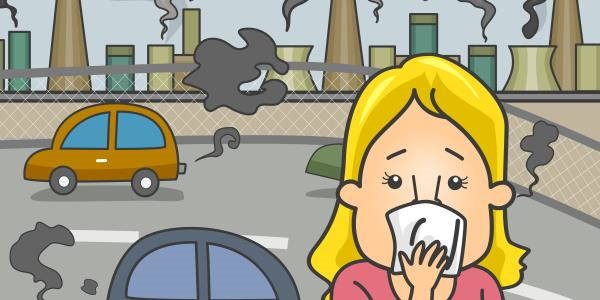
These wonderful insects are real sentinels of the state of health of the environment: they are in fact extremely sensitive to chemical molecules: they die if they come into contact with many of them. Their decimation, which alas we are experiencing, only confirms the disaster we are continuing to perpetuate, with the intensive use of pesticides and the pollution derived from human activities that the poor bees just cannot tolerate.
In this regard, the recent initiative of the municipality of Rome 'Apincittà', modeled on what is happening in Vancouver and Frankfurt, provides for the installation of a network of ten bee farms that will keep track of air pollution.
By studying the quality of honey, pollen and the health of bees themselves, in particular, the project aims to identify and calculate the presence of heavy metals in the air and the development of the city's flora, as well as radioactive compounds such as cesium, tritium and plutonium.
We cannot live without bees, yet it seems that our addiction to them is not yet so clear given our behaviors. Do we really have to decimate ourselves to reverse course (if it will ever be possible to do so at that point)?
On the dangers that bees run, read also:
- Bees die-off: shock study shows that common fungicides (also) cause it
- Massacre of bees in Friuli: it is the fault of pesticides, corn fields seized
Roberta de carolis






